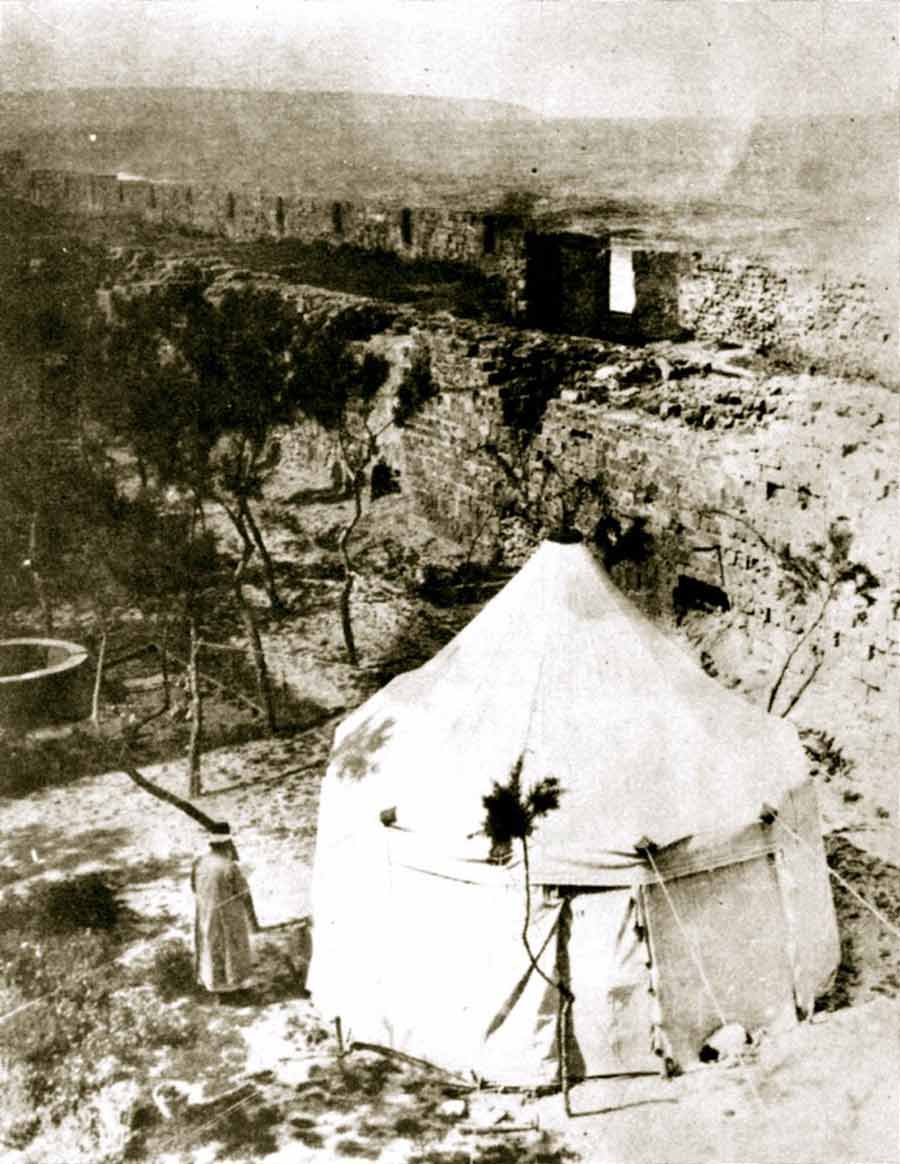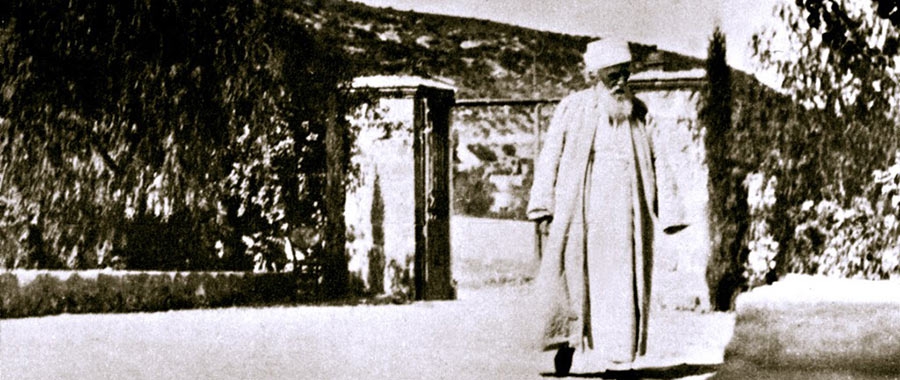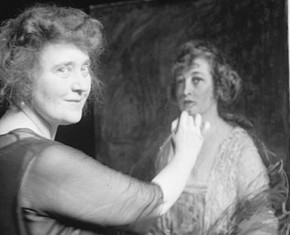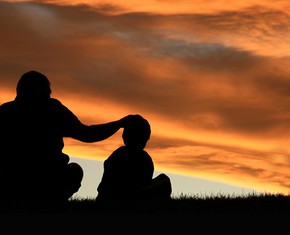The views expressed in our content reflect individual perspectives and do not represent the authoritative views of the Baha'i Faith.
Within a year of Abdu’l-Baha’s return to the Holy Land the world became engulfed in an unprecedented crisis.
Failing to heed his repeated warnings about the grave dangers that loomed on the international horizon, and refusing to rise to the principles he had unceasingly called upon them to practice in their relations with each other, the nations of the earth, led by the powers of Europe and America, fell upon each other in a struggle the likes of which had neither been witnessed nor dreamed of until then.

Abdu’l-Baha’s tent in Akka.
World War I and its immediate aftermath, a period of horrific tragedy, affected nations and territories all over the globe. The Middle East was no exception—Abdu’l-Baha was virtually cut off from the outside world.
The carnage created by the war caused Abdu’l-Baha intense distress. Observers recalled that he was agonized at the slaughter raging across the Earth, decimating entire populations through the combination of war, disease, and famine—all of it due to humanity’s failure to appreciate the very principles that he had suffered for an entire lifetime to uphold.
Toward the end of the war it came to the attention of the Baha’is in Europe that Abdu’l-Baha was in great danger. The Turkish authorities had been aroused against Abdu’l-Baha by some of his old adversaries. So grave was the situation that He had been openly threatened with crucifixion. This news was conveyed to the British Foreign Office, which in turn instructed General Allenby, at that time in Jerusalem in command of the British forces, to extend to Abdu’l-Baha every protection and consideration.
Soon British forces took Haifa, and immediately Allenby sent a cablegram to London which read: “‘Have to-day taken Palestine. Notify the world that Abdu’l-Baha is safe.’” – General Edmund Allenby, quoted in Lady Blomfield’s The Chosen Highway, p. 220.
Life returned to normal soon thereafter. Communications were reestablished, and a stream of visitors made their way to Haifa once again.
Abdu’l-Baha’s life was filled with great events, but at this juncture it is worth looking at the smaller events of his daily routine, which also demonstrate his profound attitude of loving service to all. Myron Phelps, a prominent New York attorney who was not a member of the Baha’i Faith, visited Haifa for a month and recorded a typical scene in his book, The Master in Akka:
Imagine that we are in the ancient house of the still more ancient city of Akka, which was for a month my home. The room in which we are faces the opposite wall of a narrow paved street, which an active man might clear at a single bound. Above is the bright sun of Palestine; to the right a glimpse of the old sea-wall and the blue Mediterranean. As we sit we hear a singular sound rising from the pavement, thirty feet below—faint at first, and increasing. It is like the murmur of human voices. We open the window and look down. We see a crowd of human beings with patched and tattered garments. Let us descend to the street and see who these are.
It is a noteworthy gathering. Many of these men are blind; many more are pale, emaciated, or aged …. Most of the women are closely veiled, but enough are uncovered to cause us well to believe that, if the veils were lifted, more pain and misery would be seen. Some of them carry babes with pinched and sallow faces. There are perhaps a hundred in this gathering, and besides, many children. They are of all the races one meets in these streets—Syrians, Arabs, Ethiopians, and many others.
These people are ranged against the walls or seated on the ground, apparently in an attitude of expectation;—for what do they wait? Let us wait with them.
We have not to wait long. A door opens and a man comes out. He is of middle stature, strongly built. He wears flowing light-colored robes. On his head is a light buff fez with a white cloth wound about it. He is perhaps sixty years of age. His long grey hair rests on his shoulders. His forehead is broad, full, and high, his nose slightly aquiline, his moustaches and beard, the latter full though not heavy, nearly white. His eyes are grey and blue, large, and both soft and penetrating. His bearing is simple, but there is grace, dignity, and even majesty about his movements. He passes through the crowd, and as he goes utters words of salutation. We do not understand them, but we see the benignity and kindliness of his countenance. He stations himself at a narrow angle of the street and motions to the people to come towards him. They crowd up a little too insistently. He pushes them gently back and lets them pass him one by one. As they come they hold their hands extended. In each open palm he places some small coins. He knows them all. He caresses them with his hands on the face, on the shoulders, on the head. Some he stops and questions. An aged negro who hobbles up, he greets with some kindly inquiry; the old man’s broad face breaks into a sunny smile, his white teeth glistening against his ebony skin as he replies. He stops a woman with a babe and fondly strokes the child. As they pass, some kiss his hand. To all he says, “Marhaba, marhaba”—“Well done, well done!”
So they all pass him. The children have been crowding around him with extended hands, but to them he has not given. However, at the end, as he turns to go, he throws a handful of coppers over his shoulder, for which they scramble. . . .
This scene you may see almost any day of the year in the streets of Akka. There are other scenes like it, which come only at the beginning of the winter season. In the cold weather which is approaching, the poor will suffer, for, as in all cities, they are thinly clad. Some day at this season, if you are advised of the place and time, you may see the poor of Akka gathered at one of the shops where clothes are sold, receiving cloaks from the Master. Upon many, especially the most infirm or crippled, he himself places the garment, adjusts it with his own hands, and strokes it approvingly, as if to say, “There! Now you will do well.” There are five or six hundred poor in Akka, to all of whom he gives a warm garment each year. – Myron H. Phelps, The Master in Akka, pp. 2-6, 8.
















Comments
Sign in or create an account
Continue with Googleor